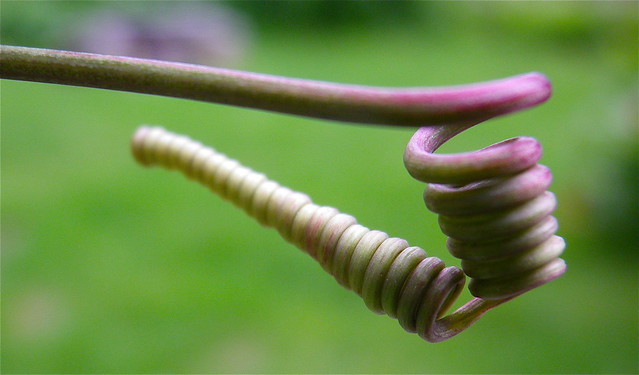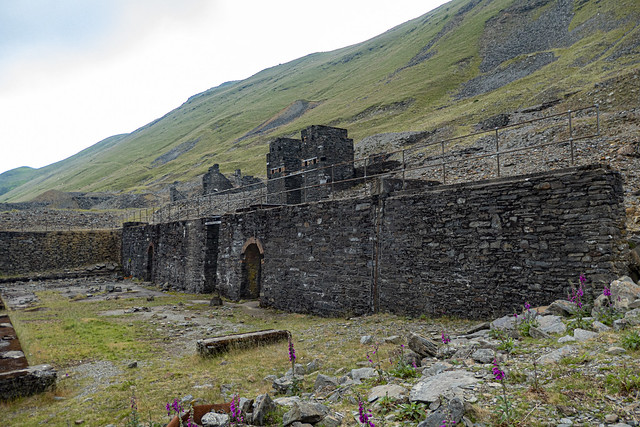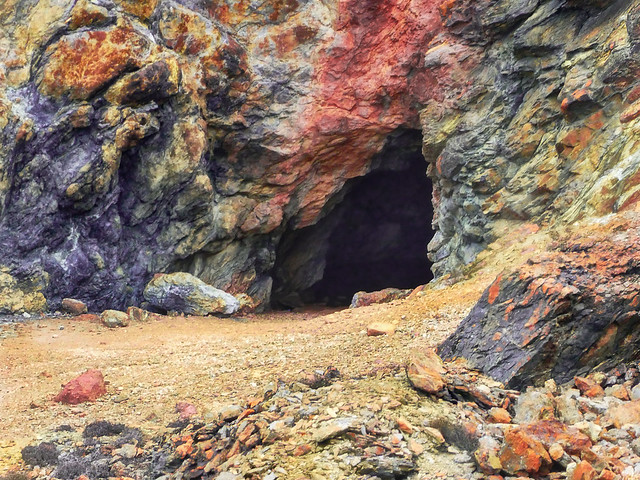Today we’re looking at the words for soft and tender and related things in Celtic languages.
Words marked with an * are reconstructions.
| Proto-Celtic | *buggos = soft, tender |
|---|---|
| Old Irish (Goídelc) | boc = soft, gentle, tender |
| Middle Irish (Gaoidhealg) | boc = soft, gentle, tender, tepid |
| Irish (Gaeilge) | bog [bˠɔɡ / bˠʌɡ] (noun) = soft, tender, flabby, indulgent, lenient, mellow (voice), mild (weather), loose, lukewarm bog (verb) = to soften, become soft, ease, warm, get milder, move, loosen, rock bogach = soft, boggy ground bogachar = softness, bogginess bogadh = softening, easement, movement, stir bogánta = soft, squelchy bogearraí = software an rud a fhaightear go bog caitear go bog é = easy come, easy go tóg go bog é = take it easy |
| Scottish Gaelic (Gàidhlig) | bog [boɡ] = flabby, soft, limp, pulpy; moist, marshy, boggy, slopp; foolish; damp, humid; indulgent; spiritless; flat (in music); lax (in linguistics) bogach = bog, fen, marsh, swamp, morass, quagmire bogachadh = wetting, steeping, moistening, mellowing, softening, swilling bathar-bog = software |
| Manx (Gaelg) | bog = soft, easy, tender, flabby, pulpy, slack, limp, moist, soft-hearted, callow boggagh = to soften, steep strong>boggaghey = to soften, relax, ease, moisten, dissolve boggyr = soft boglagh = quagmire, morass, swamp, oozy, boggy bog-roauyr = podgy bog-vroiet = soft-boiled bog- vroojit = squashy |
| Old Breton (Brethonoc) | buc = soft, tender |
| Middle Breton (Brezonec) | boug = soft, tender |
| Breton (Brezhoneg) | bouk [buːk] = soft, cozy, heavy, stifling (weather) boukaat [buˈkɑːt] = to soften, tenderize boukted = softness, weakness |
Etymology: from the Proto-Indo-European *bʰewgʰ- (to bend, curve, arch) [source].
The English word bog (wet spongy ground, marsh, swamp), was borrowed from the Irish or Scottish Gaelic bog [source]. English words from the same PIE root include badge, bagel, (to) bow, buck and bow (and arrow) [source].
| Old Irish (Goídelc) | muad = cloud, mist, fumes |
|---|---|
| Middle Irish (Gaoidhealg) | muad, muadh = cloud, mist, fumes |
| Scottish Gaelic (Gàidhlig) | muadh = soft, moist |
| Manx (Gaelg) | meeley = soft, bland, smooth, yielding, soft-spoken, moisten, delicate, fine |
| Middle Welsh (Kymraec) | medal, meddal [kam] = soft, yielding, tender, delicate, pliable |
| Welsh (Cymraeg) | meddal [ˈmɛðal / ˈmeːðal] = soft, yielding, tender, delicate, pliable; mild, gentle, placid, tolerant, merciful, lax, inexperienced, foolish, weak meddalu = to soften, become soft, thaw; to lenite, cause lenition meddalaidd = soft, softish, tender, immature, foolish, weak meddalder = softness, soft spot, tenderness, sensitivity meddaledig = softened, soft, tender meddalwedd = software treiglad meddal = soft mutation |
| Middle Cornish | medhal, meddal = soft, mollient, tender medhalder = softness, tenderness, mildness, gentleness |
| Cornish (Kernewek) | medhel = soft medhelhe = to lenite, soften, absorb medhelheans = lenition medhelweyth = software |
| Middle Breton | mezell = malleable, mean |
| Breton (Brezhoneg) | mezel = malleable, mean, leprosy |
Etymology: possibly from Proto-Indo-European *ml̥dus (soft, weak) [source]. Words from the same PIE root include mild in English, mild (mild, gentle, lenient) in Dutch, mladý (young) in Czech, molle (soft, flabby, weak, feeble) in Italian, mou (soft, mushy, squishy, slow, weak, comfortable) in French, and muelle (soft, mild) in Spanish [source].
| Proto-Celtic | *mīnis = smooth, soft, gentle *meinos = tender, soft, gentle |
|---|---|
| Gaulish | *mēnos = (?) |
| Old Irish (Goídelc) | mín = fine, minor, petty, small, level, smooth |
| Middle Irish (Gaoidhealg) | mín, min = smooth, level, calm, gentle, placid, courteous, docile, digestible, palatable, soft |
| Irish (Gaeilge) | mín [mʲiːnʲ] = smooth, fine míneadas = gentleness, refinement míneog = gentle, placid woman mínigh = to smooth, polish, level, reclaim, make gentle, assuage, quiet, explain, expound, interpret míníneacht = daintiness, refinement, gentleness, quietness, subtlety, preciosity, dainty, delicacy mínitheoir = smoother, polisher, leveller, reclaimer, assuager, pacifier, explainer, interpreter |
| Scottish Gaelic (Gàidhlig) | mìn [miːn] = smooth, silky, sleek, gentle, dainty, downy, powdery, fine, bland mìneachd [miːnəxg] = smoothness, softness, delicacy, minuteness mìnealas = softness, gentleness |
| Manx (Gaelg) | meen = soft, sweet, meek, mild, bland, darling, dear, patient, quiet meeninagh = soft, tameable, emollient meeinid = softness, smoothness, patience, mildness, gentleness, blandness |
| Proto-Brythonic | *muɨn = mild, gentle |
| Middle Welsh (Kymraec) | mwyn = tender, mild, gentle, meek mwynaidd = tender, mild, gentle, kind mwynas = good, turn, kindness, courtesy, love |
| Welsh (Cymraeg) | mwyn [muːɨ̯n / mʊi̯n] = tender, mild, gentle, meek, amiable, loving, kind, obliging, courteous, noble, fair, pleasant, sweet-sounding, melodious, soft, soothing mwynaidd = tender, mild, gentle, kind mwynas = good, turn, kindness, courtesy, love mwyndeb = mildness, gentleness, pleasure mwyndeg = gentle and fair, tender, genial, affable |
| Old Cornish | muin = gracile |
| Middle Cornish (Cernewec) | mon, moyn = slender, |
| Cornish (Kernewek) | moon = slender, slim, thin |
| Old Breton (Brethonoc) | moin = delicate |
| Middle Breton (Brezonec) | moan = thin, slim, slender |
| Breton (Brezhoneg) | moan [mwãːn] = thin, slim, slender, fine, subtle moanaat = to get thinner, get slimmer, thin down, lose weight moanard = a thin, slender, skinny person moanded = slimming |
Etymology: from Proto-Indo-European *meyh₁- (mild, soft). Words from the same root possible include mite (mild, moderate, balmy, mild, meek) and mezzo (half, middle, means, method) in Italian, miły (nice, pleasant, dear, gentle, soft) in Polish, and mielas (nice, sweet, cute) in Lithuanian [source].
Sources: Wiktionary, Etymological Dictionary Of Proto Celtic, In Dúil Bélrai English – Old Irish glossary, eDIL – Electronic Dictionary of the Irish Language, Teanglann.ie, Am Faclair Beag, An etymological dictionary of the Gaelic language, Fockleyreen: Manx – English Dictionary, Online Manx Dictionary, Gaelg Corpus, Geiriadur Prifysgol Cymru, Lexicon cornu-britannicum : a dictionary of the ancient Celtic language of Cornwall, Gerlyver Kernewek, Devri : Le dictionaire diachronique du breton, Geriafurch, TermOfis











